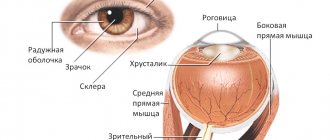Many people tend to attribute sudden attacks of headaches or general loss of energy to a change in weather. Patients with long-standing injuries often complain that before a thunderstorm, healed dislocations and fractures begin to hurt. According to WHO, about one third of the world's population believes that their well-being depends on weather conditions. But is this really so?
The International Classification of Diseases, which guides doctors when making diagnoses, does not include the terms “meteosensitivity” or “meteodependence.” Scientists and doctors continue to explore the relationship between weather events and exacerbation of chronic diseases.
What is weather sensitivity and weather dependence?
A person feels comfortable at a certain temperature, humidity and pressure. Changing any of these parameters can cause discomfort: for example, too dry air leads to drying of the mucous membrane of the nasopharynx, resulting in a cough. But the human body adapts well to various environmental changes: this explains why people in general tolerate changing climate zones and sudden changes in pressure that occur when taking off and landing an airplane or diving to depth.
The better developed the adaptive mechanisms of the body, the less a person pays attention to changes in temperature or pressure. Due to age-related changes, adaptation occurs worse; the situation is aggravated if there is a history of chronic diseases. A person does not become weather dependent, but his body adapts less well to changing weather.
Why do many patients believe that their well-being depends on weather changes? There are several reasons:
- self-hypnosis: the patient is sure that weather disasters affect his health, an additional stress factor arises, which “triggers” the exacerbation of a chronic disease;
- the tendency of people to connect different events: a person remembers attacks of illness longer if they occurred simultaneously with weather changes. Such episodes are stored in memory, and gradually a feeling of a relationship between the disease and the weather arises.
But doctors do not deny that a sharp increase or decrease in temperature can be dangerous in itself. For example, summer heat often leads to sunstroke and heatstroke, and winter cold coupled with physical activity increases the risk of heart attack. But weather change in itself does not affect either the physical or mental health of people.
Processes occurring in the atmosphere when pressure decreases
The pressure always decreases within a certain area, and not everywhere. In an area with a decrease, a specific feature of air circulation is observed - molecules rush there, and then rise upward, losing temperature. As the air cools down, it can contain less and less moisture - this is its peculiarity.
The hot atmosphere can be quite humid, while the cold atmosphere tends to get rid of excess water, which has no choice but to condense in the form of clouds. That is, in areas with low pressure, the air rises from the surface of the planet, simultaneously getting rid of moisture, which forms clouds that move in the skies. But if we talk about high blood pressure, then the picture is completely different.
So, there is a lot of cold air here, which is located at a considerable altitude. The masses decrease, mix with warm air and spread over the surface of the earth, simultaneously forming clear weather. There are no clouds, since there is nothing to condense - the air from a high altitude, where it is always cold and the molecules cool down, not being able to pick up a lot of moisture along the way, remains dry. There are no conditions for the formation of clouds, so the weather in this case remains sunny.
Interesting: Why are rivers winding?
Can weather affect health and well-being?
If a person does not have chronic diseases and adheres to a healthy lifestyle, a change in weather cannot affect his well-being. But prolonged rains, gloomy skies and lack of sunlight for several days can cause a decline in activity and affect the psycho-emotional state. From a physiological point of view, this is due to a slowdown in certain metabolic processes: for example, a decrease in the production of vitamin D.
If there is no confirmed scientific data on people's weather dependence, why is such a large percentage of the population confident that worsening weather affects their well-being? Typically, symptoms of meteosensitivity include:
- headaches and dizziness;
- decreased activity level;
- drowsiness or, conversely, insomnia;
- change in appetite;
- increased fatigue;
- sudden mood swings;
- apathy.
These signs can indicate a wide range of pathologies: from low levels of hemoglobin in the blood to diseases of the cardiovascular system. If you think your body is reacting to the elements, it's worth scheduling a preventive health checkup. Most likely, the doctor will determine the physiological cause of poor health.
To make a diagnosis, you will need to undergo an examination and a number of studies: for example, take general urine and blood tests, check biochemistry, and hormone levels. Often, “meteosensitivity” hides hormonal disorders. After the examinations, the doctor will make an accurate diagnosis, select treatment if necessary, adjust the diet, and develop preventive measures to maintain high vitality in any circumstances.
Headache due to increased atmospheric pressure: how to avoid?
Why do you get headaches at high atmospheric pressure? This is explained by the fact that the blood vessels dilate. Blood pressure increases, heart rate increases, and tinnitus appears.
If a person has a headache at high atmospheric pressure, you need to carefully consider your condition. This is necessary, since there is a high risk of hypertensive crisis, stroke and heart attack, coma, thrombosis, embolism.
High atmospheric pressure, headache... What to do? When such a situation arises, it is necessary to limit physical activity, take a contrast shower, drink more fluids, cook low-calorie foods (eat more fruits and vegetables), and try not to go outside in the heat, but stay in a cool room.
Thus, there is a negative effect of high atmospheric pressure on the vessels of the head. In addition, the load on the heart and the entire cardiovascular system increases. Therefore, if it becomes known about an increase in atmospheric pressure, you need to prepare for this in advance by postponing all non-essential matters and providing the body with a rest from stress.
Why does the pressure “jump”?
One of the myths of “meteosensitivity” is associated with the opinion that blood pressure depends on weather fluctuations and magnetic storms. In fact, scientists have not found any relationship between these events. Blood pressure can indeed change due to external changes, but only under extreme conditions, for example, when climbing mountains.
Moreover, cardiologists say that the increase in blood pressure itself should not cause any inconvenience to a person. Problems begin only if the patient already has diseases of the cardiovascular system. The only exception to this rule: a hypertensive crisis, in which blood pressure becomes so high that the patient begins to experience nausea, chest pain, and shortness of breath.
What reasons actually lead to changes in blood pressure?
- alcohol poisoning. “Hangover syndrome” is usually accompanied by high blood pressure - alcohol breakdown products cause cerebral vascular spasm;
- uncontrolled medication use. Some popular over-the-counter painkillers can cause blood pressure spikes. Before using any pharmacological drugs, you should consult a qualified physician. If you suffer from attacks of pain, painkillers should be prescribed by your GP;
- high level of stress. Psycho-emotional overload is one of the main risk factors for cardiovascular diseases. Cardiologists pay so much attention to mental hygiene and strongly encourage their patients to reduce their stress levels as much as possible.
“Jumps” in blood pressure often indicate the presence of some problems: for example, cervical osteochondrosis or kidney inflammation. If there are signs of frequent changes in pressure, you must make an appointment at a medical center, undergo appropriate examinations and determine their cause.
The degree of dependence of the general condition of the body on atmospheric pressure. How do they manifest themselves?
The following degrees of dependence on atmospheric pressure are distinguished:
- first (mild) – slight malaise, anxiety, irritability appears, and performance decreases;
- second (medium) – changes occur in the body’s functioning: blood pressure changes, heart rate becomes erratic, and the content of leukocytes in the blood increases;
- third (severe) – requires treatment and can lead to temporary disability.
Why does arrhythmia sometimes worsen due to weather changes?
Despite the fact that a healthy person does not pay attention to changes in the weather, people with cardiovascular diseases react quite sharply to temperature changes. This is explained by a violation of the adaptive mechanism: chronic diseases of the heart and blood vessels weaken the body’s ability to adapt to changing environmental conditions. How does this happen?
For example, when the temperature rises (as happens in the summer heat), the vessels dilate, blood flows to the tissues and organs, which causes additional stress on the heart. Blood pressure may drop, causing symptoms such as dizziness, blurred vision, shortness of breath, and cold sweats. On hot days, people with chronic heart diseases, for example, those suffering from arrhythmia, are advised to spend as little time as possible outside, reduce physical activity, and drink more.
Cold also has a negative effect on cores. Vasoconstriction increases the load on the heart muscle, and blood pressure rises. If the vascular tissue is weak (with atherosclerosis), there is a high risk of vessel rupture, aneurysm, heart attack or stroke.
But a much greater risk is created by self-hypnosis: if a person believes that weather anomalies affect his health, the level of stress increases significantly. The heartbeat increases, the arrhythmia worsens. Its main symptoms appear:
- feeling of “interruptions” in the chest;
- chest pain;
- dyspnea;
- dizziness;
- loss of consciousness.
Taking natural sedatives and calm, deep breathing helps relieve anxiety. But in order to keep arrhythmia under control, it is necessary to undergo regular examinations with a cardiologist. The doctor will develop recommendations that will help weather-sensitive people cope with magnetic storms and other anomalies. Their influence can be compensated with the help of healthy lifestyle rules and medications.
Types of weather dependence. How are they different from each other?
Scientists distinguish the following types of weather dependence:
- cerebral – the appearance of headaches, dizziness, tinnitus;
- cardiac – the occurrence of painful sensations in the heart, disturbances in heart rhythm, increased breathing, sensations of lack of air;
- mixed - combines the symptoms of the first two types;
- asthenoneurotic – the appearance of weakness, irritability, depression, decreased performance;
- uncertain – a feeling of general weakness of the body, pain in the joints, lethargy.
Why do I get headaches when the weather changes?
Weather sensitivity is not an official diagnosis or disease: a healthy body normally tolerates any weather changes. If you notice that in cloudy weather you suffer from dizziness and headaches, this is an alarming signal indicating that pathological processes are occurring in your body. It is recommended to make an appointment with a neurologist or cardiologist.
Typically, headaches when the weather changes occur due to impaired vascular tone. Inside the skull, its own pressure is established (intracranial), the maintenance of which is important for the normal nutrition of brain cells. If vascular tone is disturbed (as, for example, with cervical osteochondrosis), a change in ambient temperature can provoke severe pain.
The mechanism of its development is as follows: temperature or pressure changes, in order to adapt to these changes, the vessels in the human body narrow or expand. But if their tone is disturbed, there are plaques on the walls or other pathologies are observed, this leads to circulatory disorders and changes in intracranial pressure. As a result, the patient may experience different types of headaches: from a “cotton-like sensation” to throbbing in the temples or migraine.
Pain can also be caused by an electrolyte imbalance. For example, if the air becomes humid, fluid accumulates in the body, which leads to an imbalance and can cause headaches. What to do in such cases?
To stop depending on weather changes, it is necessary to cure the disease: cope with osteochondrosis, restore vascular tone. To do this, you first need to understand why the body reacts sharply to temperature fluctuations. You can do this by making an appointment with a cardiologist or therapist at a medical center.
Headache due to decreased atmospheric pressure: how to prevent?
Why do headaches appear at low atmospheric pressure? This is explained by the fact that the blood vessels narrow. Blood pressure decreases and pulse weakens. Breathing becomes difficult. Intracranial pressure increases, which contributes to spasm and headache. Hypotonics suffer mainly. This can lead to serious consequences. For a hypotensive person in this situation, the danger lies in the onset of a hypertensive crisis and coma.
Low atmospheric pressure, headaches... What to do? In this case, it is recommended to get enough sleep, drink more water, drink coffee or tea in the morning, and also take a contrast shower.
So, a decrease in atmospheric pressure for hypotensive people is fraught with headaches and can lead to disruptions in the functioning of body systems. Therefore, such people are recommended to regularly harden themselves, give up bad habits, and normalize their lifestyle as much as possible.
What heart problems can arise due to weather changes?
Changes in weather cannot disrupt the functioning of a healthy heart, but can cause an exacerbation of chronic cardiovascular diseases. Doctors identify two main types of weather that are dangerous for heart patients:
- spastic: characterized by an increase in air pressure with a simultaneous decrease in temperature. This can lead to exacerbations of hypertension, angina, and coronary heart disease. Many patients complain of severe headaches due to vascular spasms;
- hypoxic: characterized by a decrease in pressure at high temperatures. Such weather is easier for patients with chronic heart disease, and there is less risk of stroke, heart attack or hypertensive crisis. But at the same time, shortness of breath and dizziness may develop, since the concentration of oxygen in the air decreases, and mild symptoms of hypoxia occur. Even healthy people may feel more lethargic and sleepy.
The essence of atmospheric pressure and its effect on the body
Atmospheric pressure is the force with which an air column exerts an impact on 1 cm2 of surface. The normal level of atmospheric pressure is 760 mm Hg. Art. Even minimal deviations from this value in one direction can lead to a deterioration in well-being. The following symptoms may appear:
- headache and dizziness;
- joint pain;
- unreasonable anxiety;
- decreased performance;
- depression;
- weakness of the body;
- deterioration of the gastrointestinal tract;
- difficulty breathing, shortness of breath.
Prevention of heart disease for weather-sensitive people
If you consider yourself to be a weather-sensitive person, this means that hidden pathological processes are occurring in your body - a healthy body easily adapts to changing weather without any unpleasant consequences in the form of pain or shortness of breath. The first thing that is recommended to do is to be examined by a cardiologist.
It is also recommended to consult a specialist in order to receive professional recommendations on the prevention of heart disease during sudden temperature changes. To feel good at any time of the year, you should:
- to refuse from bad habits. Smoking and alcohol create additional stress on the cardiovascular system. Abuse of alcohol-containing drinks in the heat is especially dangerous: alcohol causes cerebral vasospasm, and hot, humid weather retains fluid in the body;
- Avoid fatty, salty and smoked foods. These foods can also retain excess water in the body, disrupting the balance of electrolytes, increasing the symptoms of heart disease and worsening a person’s overall well-being;
- to live an active lifestyle. Regular physical activity strengthens the immune system, improves muscle and vascular tone, promotes blood microcirculation, and strengthens the heart muscle. As a result, the body’s adaptive ability increases: the body “rebuilds” more easily under changes in temperature and pressure;
- spend more time in the fresh air. Deep breathing saturates the blood with oxygen and relaxes, relieves vascular spasm. As a result, weather changes are easier to bear and less likely to lead to unpleasant consequences.
It is also recommended that all persons suffering from cardiovascular diseases regularly take vitamin complexes to maintain normal heart function.
1
0
2
Article rating:
2.46 out of 5 based on 13 ratings
Author: Luchinin Mikhail Yakovlevich
Cardiologist. Highest category, candidate of medical sciences. Work experience 31 years.
How to prevent headaches as a result of changes in atmospheric pressure?
Most people get headaches when their air pressure is too low or too high. What to do in this case? The best solution in the presence of weather dependence is healthy sleep, putting your lifestyle in order and maximizing the body’s ability to adapt. In particular, you need:
- Rejection of bad habits.
- Minimizing tea and coffee consumption.
- Hardening, contrast shower.
- Formation of a normal daily routine and adherence to a good sleep schedule.
- Reducing stress.
- Moderate physical activity, breathing exercises.
- Walking in the fresh air (can be combined with physical therapy).
- Consumption of adaptogens, such as ginseng, eleutherococcus, and lemongrass tincture.
- Taking courses of multivitamins.
- Healthy and nutritious nutrition. It is advisable to consume more foods containing vitamin C, potassium, iron and calcium. Fish, vegetables and dairy products are recommended. Hypertensive patients should not consume salt.
Atmospheric pressure fluctuations and well-being
These days, sharp changes in atmospheric pressure are observed on the European territory of Russia.
Last weekend, as the North Atlantic cyclone passed through the center of the country, the atmospheric pressure dropped sharply. And at the beginning of this week, the cyclone replaced the anticyclone, the atmospheric pressure on Tuesday will rise sharply and will remain elevated for several days. In the second half of the week, another North Atlantic cyclone will pass through the north of EPR. Sharp rises and falls in atmospheric pressure are again expected with it.
With a noticeable change in atmospheric pressure, both downward and upward, the human body often feels a deterioration in well-being. Here are some generally accepted recommendations from the website for reducing the negative symptoms of high or low atmospheric pressure on our body.
Anticyclone An anticyclone is an increase in atmospheric pressure, which is accompanied by calm, clear weather with no sudden changes in temperature or humidity levels. Increased atmospheric pressure has a very negative effect on human health, especially if he is allergic, asthmatic or suffers from high blood pressure. Such people react quite sharply to various harmful impurities in the air, the number of which increases significantly in dry, windless weather.
In the human body, an anticyclone manifests itself as headaches and heart pain, decreased performance, malaise and general weakness. Increased atmospheric pressure negatively affects the body's protective functions by reducing the number of leukocytes in the blood. All this significantly undermines human health, making him vulnerable to various infectious diseases.
In order to facilitate the effect of the anticyclone, it is recommended to take a contrasting invigorating shower in the morning, do light exercises and introduce more fruits containing potassium into your daily diet. To reduce the load on a person’s immune and nervous systems, it is better to temporarily abandon serious and important matters. If possible, it is necessary to rest more in order to quickly restore the strength lost by the body in the fight against the negative influence of the anticyclone.
Cyclone A cyclone is a decrease in atmospheric pressure, which is usually accompanied by increased temperature, cloudiness, humidity and precipitation. People suffering from low blood pressure, respiratory problems, and cardiovascular problems are most susceptible to the effects of the cyclone. The main manifestations of the negative impact of a cyclone on the human body are: difficulty breathing, shortness of breath, lack of air and general weakness. This is due to a lack of oxygen in the surrounding air. Often during a cyclone, a person’s intracranial pressure increases, resulting in a severe migraine. In addition, there may be disruptions in the functioning of the stomach and intestines, which are associated with intense gas formation. With the arrival of a cyclone, it is necessary to constantly monitor your blood pressure levels. Drinking plenty of fluids, a contrast shower, a restful, sound sleep, and a morning cup of coffee will help you with this. To maintain general health during periods of low atmospheric pressure, it is recommended to drink tincture of lemongrass or ginseng.
Rules for reducing symptoms of weather dependence Atmospheric pressure, or rather its sharp changes, more often take residents of megacities by surprise. It is almost impossible to completely cure this form of weather dependence, but by following some simple rules, you can significantly improve your health in difficult weather conditions. First of all, you need to strictly monitor your daily routine and go to bed earlier if possible. In case of sudden changes in atmospheric pressure, sleep should last at least 9 hours. For a good night's rest, it is recommended to drink a glass of chamomile or mint tea at night, and when you wake up, do a light massage of your legs and feet, and only then get out of bed. In order to cheer up, you should do daily short exercises, which will help tone your blood vessels. It is necessary to exclude bending and squats from the list of gymnastic exercises, as they require balance. After charging, it is recommended to take a contrast shower, which has a positive effect on the health of all internal systems and human organs.
A complex of vitamins, which should be taken during changes in atmospheric pressure, will help to support the nervous system well. You need to eat often, but in small portions, and in no case overload your body with heavy food. While working at the computer for many hours, you need to periodically take a break, during which you can do short exercises, change your position, and also do a massage of the cervical and temporal zones yourself. In order to endure all weather surprises as painlessly as possible, try to avoid severe overexertion and stress. It is also not recommended to carry out strength training and responsible activities at this time. In case of pressure changes, it will be useful to visit the pool, where the calm atmosphere and healing effects of water will help you forget about all the troubles.
Weather-sensitive people are advised to increase their consumption of water and fruit juices. If there are changes in blood pressure, you should rest more in a lying position. Sweet warm tea will help restore tone to the body with low blood pressure. During these difficult days, it is very important to notice in time the alarming signs that may indicate serious illnesses: - unpleasant sensations in the chest, radiating to the shoulder, shoulder blade or umbilical region; - sudden loss of sensation in the lower and upper extremities; - feeling of numbness in half of the face; - difficulty speaking; - unexpected attack of nausea; - blurred vision or flickering of spots before the eyes; - breathing problems.
We wish you vigor and good health, regardless of the level of atmospheric pressure!
Watch the weather forecast on TV and you'll likely hear the meteorologist say something about an approaching low-pressure system, followed by a forecast for the chance of rain in your area. It is no coincidence that these two factors appear together, but many people do not know why this happens regularly. There's a good explanation there. By learning about the impact of low pressure systems on the weather, you will be able to forecast the weather yourself and get closer to rain by watching the barometer.High and low pressure readings are an indication of how much weight the atmosphere is putting on a particular area. When pressure is low, air is free to rise into the atmosphere, where it cools and condenses. This condensation forms clouds, consisting of water droplets and ice crystals, around dust particles in the sky. Eventually, the water vapor in the clouds condenses and falls as rain. Without low pressure, most of the air and water vapor inside it would not reach a high enough height to condense, so there would be no rain. This is why when you see areas of low pressure, it often rains.
Low pressure system brings steady rain
Rain comes in varying intensities, so long, persistent rain isn't always what you'll see. When long, persistent rain occurs, it is due to the position of a low pressure system relative to a warm front. In the United States, it is common for a low pressure system to create persistent, persistent rain or snow north of a warm front. Warm, moist air enters an area of low pressure and rises above the body of cold air ahead of the warm front. This results in longer and more persistent periods of rain or snow.
Low pressure and high temperature thunderstorms
When a low pressure system is located just ahead of a cold front, the warmer, less stable air ahead of the front can develop into a thunderstorm inside a counterclockwise rotating area of low pressure. This is the situation that produces the strongest thunderstorms and shorter, heavier downpours that many areas typically experience during the spring and summer. The lower the pressure, the higher the air can rise and form thunderclouds. And generally, the higher the clouds, the stronger the thunderstorm potential.
Causes of low blood pressure
The sun is the main cause of pressure differences around the world. Due to the rotation and shape of the Earth and the rising and setting of the sun, different parts of the world are exposed to different temperatures at any given time. The difference in temperature also affects the amount of pressure in this area.
The atmosphere is constantly adjusting to try to equalize pressure across the planet, often without success. As this cycle of fluctuating pressure is fueled by temperature fluctuations, areas of high and low pressure move. Dispersion can also be perpetuated by powerful weather systems. For example, in large rain or snow systems, the low pressure system is further lowered due to the warming that occurs as a result of the presence of water vapor heated by the sun.










